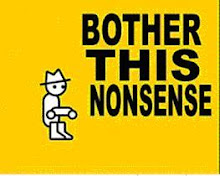Ms. Peifer
10 IB Hour 4
4 December 2008
LRJ #2
1. Several more values of Beowulf's society become evident in the second section. The first value is that of revenge. Revenge plays a large part in causing the story, since the Grendel and his mother were essentially killed to get revenge for their slaying of Hrothgar's subjects. The general belief seems to be that revenge is better than simple mourning. As Beowulf says, "...do not grieve. It is always better to avenge dear ones than to indulge in mourning... Let whoever can win glory before death." (1384) This shows how Beowulf believes that it is much better to avenge the fallen then simply mourn them.
Another value that is shown is family. This one is shown more indirectly - no character actually says that family is important, but many characters are referred to by their fathers instead of simply their own names. The fact that this is even done shows that they believe that family is important. A few examples of this are "He waas Yrmenlaf's elder brother..." (1324), "Beowulf, son of Ecgtheow, spoke..." (1383), and "Unferth, te strong-built son of Ecglaf..." (1467). These show how people identify themselves by their family, fathers, and brothers, showing how they value family.
2. As a fantastic story about heroes and monsters, Beowulf is quite unrealistic (not that this is a bad thing). One place this is shown is in the fight with Grendel. For example, Grendel, "Grabbed thirty men from their resting places..." (122). Clearly, this would be very difficult for a monster that is roughly human-shaped, so it's unrealistic. Another unrealistic part is when Beowulf rips Grendel's arm off. "Sinews split and and the bone-lappings burst," (817). Again, it would be nearly impossible for someone to break bone and sinew with their bare hands, especially the bone and sinew of someone who can lift 30 men. Another unrealistic part is when he swims to the bottom of the lake: "It was the best part of a day before he could see the solid bottom." This is unrealistic for a couple of reasons: no one could hold their breath for that long, and very few lakes are anywhere near that deep.
3. One of my favorite quotes from this section is "...heaved his war-sword and swung his arm: the decorated blade came down ringing and singing on her head. But he soon found his battle-torch extinguished: the shining blade refused to bite," (1520). This quote, for me, is an excellent example of what Beowulf is and is about. It has a kenning in it, it describes a battle, and it contains interesting and engaging descriptions of the action that nonetheless give you a clear idea of what is going on in the story. This, for me, is what Beowulf is all about.
No comments:
Post a Comment